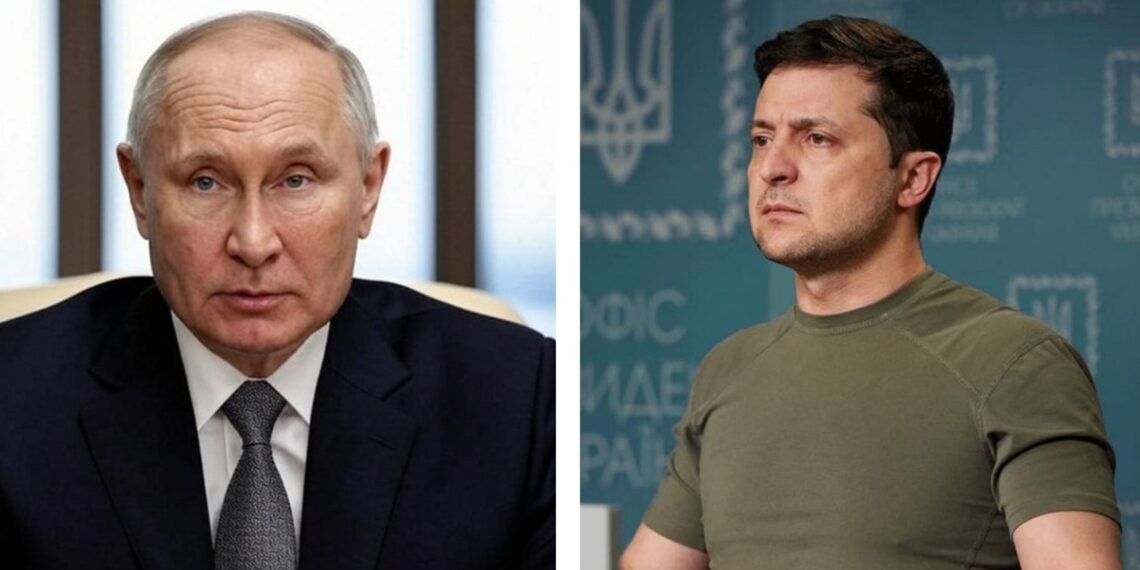Istanbul: Ukrainian President Volodymyr Zelenskyy has arrived in Turkey to participate in a fresh round of peace discussions aimed at ending more than three years of war, though Russian President Vladimir Putin is notably absent from the proceedings, drawing criticism from Western officials.
While the Ukrainian delegation landed in Ankara led by Zelenskyy himself—accompanied by senior officials including Defense Minister Rustem Umerov, Foreign Minister Andrii Sybiha, and Presidential Chief of Staff Andriy Yermak—the Russian side sent a lower-ranking team headed by Putin aide Vladimir Medinsky.
The Kremlin confirmed the composition of its delegation on Wednesday, which includes three other senior officials and four “experts,” but not the Russian president.
Zelenskyy had earlier publicly called on Putin to meet him in Turkey to engage in direct talks.
The Ukrainian leader is expected to hold discussions with Turkish President Recep Tayyip Erdoğan first, with any potential meeting with the Russian delegation still unconfirmed.
“We are at a rare moment where real dialogue may be possible,” said Turkish Foreign Minister Hakan Fidan during a separate NATO summit in Antalya. “These talks could mark the beginning of a new phase.”
Putin’s absence has cast doubt on Moscow’s commitment to the peace process.
European and U.S. officials have interpreted it as a sign that Russia is not engaging in good faith.
“There is one chair unfilled, and that’s Putin’s,” said Finnish Foreign Minister Elina Valtonen. “His absence speaks volumes about Russia’s intent.”
France’s Foreign Minister Jean-Noël Barrot echoed the sentiment, warning that continued stalling could trigger “massive sanctions” from the European Union.
Kremlin spokesman Dmitry Peskov stated that Putin had met with key security and defense officials—including Defense Minister Andrei Belousov and National Security Council Secretary Sergei Shoigu—prior to dispatching the delegation, which Russia has framed as a “restart” of negotiations initially held in Istanbul in 2022.
Those early efforts collapsed amid accusations that Moscow’s demands resembled ultimatums rather than genuine proposals.
Ukraine Pushes for Ceasefire, Russia Offers Talks
While Kyiv and its Western allies have called for an immediate, unconditional 30-day ceasefire as a starting point for negotiations, Moscow appears to be focusing on resuming direct talks without agreeing to pause hostilities.
“President Zelenskyy will only engage in talks directly with Putin,” said Mykhailo Podolyak, an adviser to the Ukrainian presidency.
“We are not interested in symbolic gestures—we want real commitments.”
The Kremlin’s decision to forego a ceasefire offer was reportedly discussed at length in an internal meeting on Wednesday evening.
Meanwhile, a source from the Ukrainian delegation indicated that concrete plans for any meeting with Russian officials are likely to be shaped following Zelenskyy’s talks with Erdoğan.
According to Russian state media outlet TASS, the proposed venue for any talks is a presidential office on the banks of the Bosporus in Istanbul.
In Antalya, where NATO foreign ministers have convened, Ukrainian Foreign Minister Sybiha met with U.S. officials including Secretary of State Marco Rubio and Senator Lindsey Graham.
The discussions focused on continued Western support and the importance of holding Russia accountable should diplomacy fail.
Rubio noted the urgency of the situation: “This is a critical juncture. We either move toward a negotiated peace or risk the conflict continuing indefinitely.”
ALSO READ: Indian astronaut Shubhanshu Shukla set for historic space mission on June 8
The peace initiative has gained momentum in recent months, reportedly influenced by U.S. presidential candidate Donald Trump’s campaign promise to help broker an end to the conflict.
Trump, who has pushed for a direct meeting between Putin and Zelenskyy in Istanbul, said he was “not surprised” by Putin’s absence, quipping, “He wouldn’t show up if I’m not there.”
Despite that remark, Ukraine’s representatives reiterated their support for Washington’s mediation role and urged Moscow to respond with matching sincerity.
“We’ve taken constructive steps. Now it’s up to Russia to do the same,” said Sybiha.















